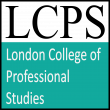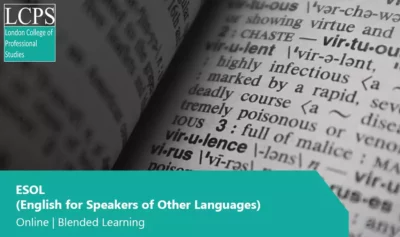Browse Categories
Level 5 Diploma for Senior Practitioner
Overview:
The goal of the NCFE Level 5 Online Diploma for the Early Years Senior Practitioner course is to advance knowledge and abilities in early years practise as well as early years leadership and management.
A excellent example for the group will be the Senior Practitioner with the NCFE Diploma for Early Years. For the purpose of ensuring quality provision through clear leadership and effective management, the Senior Practitioner will support and promote best practises within regulatory limitations. While collaborating with coworkers, other professionals, and parents/caregivers, the Senior Practitioner engages and motivates everyone involved to improve outcomes for infants and children.
The areas covered in this qualification include:
- Quality environments
- Early years pedagogy
- Behavior
- Care routines
- Professional development
- Special Educational Needs and Disability (SEND)
- Safeguarding
- Inclusion
- Development
- Play for learning
- Partnership working
- The Early Years Foundation Stage (EYFS)
- Leading and managing
- Health, safety, and well-being roles and responsibilities.
Delivery Methods
London College of Professional Studies offers its students a variety of flexible delivery modalities. Blended learning, online learning, remote learning, and in-class learning are all examples of this. The form of study can be chosen by the students based on their preferences and convenience.
Learners are able to:
- Access All course materials, including online modules and written assignments
- Gain Teacher support
- Access LCPS online portal (24/7 access to our user-friendly learning portal)
- Acquire Assignments briefing
- Receive Excellent quality of study notes
- Obtain Assignment marking and feedback
- Access Free Online library.
- Gain Fully accredited UK courses
- Receive Dedicated customer support via chat, telephone, and email (Monday to Friday)
- Gain Full support until the completion of the course
Accreditation
NCFE/ Cache Ofqual regulated awarding body

Duration
The programme is available in 2 duration modes:
- 10 Months
- 12 Months
Course Delivery
- Online
- In-Class Learning
Entry Requirements
Students should be at least 18 years old. Additionally, Level 2 proficiency in both English and mathematics is advised.
Does having a job require you to take the qualification?
Both knowledge and skill proficiency are required from learners. Learners must be working in the capacity of Leader, Deputy, or Manager in an appropriate setting, or have the opportunity to perform the duties associated with these roles, in order to study for the NCFE Diploma for Early Years Senior Practitioner.
Assessment
Learning. A task that has been externally set and internally marked must be used to evaluate EYSP 2 and EYSP 12. Other modules may be assessed using a variety of techniques, such as direct observation of practise, professional discussion, work output, or a portfolio of supporting documentation.
Module Structure
Learners must acquire a total of 90 credits from all 18 required units to receive this certificate.
Mandatory learning assessments are included in this section, which show how students’ work will align with each unit’s criteria. Examples of possible portfolio proof are also provided. For further information on the mandatory approaches to assessment for EYSP 2 and EYSP 12, please see the Assessment of Learning.
| Unit title | Unit type | Level | Credit |
| Manage care routines for children | Knowledge/ Skills | 5 | 5 |
| Lead practice in promoting the well-being and resilience in children | Knowledge/ Skills | 5 | 7 |
| Model positive behavior in the early years | Knowledge/ Skills | 5 | 5 |
| Lead activities, experiences, and educational opportunities to promote children’s speech, language and communication | Knowledge/ Skills | 5 | 5 |
| Lead children’s early education and development | Knowledge/ Skills | 5 | 4 |
| Understand holistic child development from birth to 7 years | Knowledge | 5 | 6 |
| Developing children’s emergent literacy skills | Knowledge/ Skills | 3 | 3 |
| Developing children’s emergent mathematical skills | Knowledge/ Skills | 3 | 4 |
| Develop and implement policies and procedures to support the safeguarding of children | Knowledge/ Skills | 5 | 6 |
| Develop health and safety and risk management policies, procedures, and practices in Early Years Settings | Knowledge/ Skills | 5 | 5 |
| Champion equality, diversity, and inclusion | Knowledge/ Skills | 5 | 4 |
| Supporting children with Special Educational Needs and Disability in an Early Years Setting | Knowledge/ Skills | 4 | 8 |
| Work in partnership in Early Years Settings | Knowledge/ Skills | 4 | 4 |
| Lead and manage a team within an Early Years Setting | Knowledge/ Skills | 6 | 7 |
| Develop, maintain, and use records and reports | Knowledge/ Skills | 4 | 3 |
| Quality provision in Early Years Settings | Knowledge/ Skills | 6 | 5 |
| Promote professional development | Knowledge/ Skills | 4 | 4 |
| Review own knowledge of learning and development for early years practice | Knowledge/ Skills | 5 | 5 |
Progression
Learners should be able to advance within the Early Years Workforce or to further education in a pertinent field.
Who is it appropriate for?
The Level 5 Diploma for the Early Years Senior Practitioner qualification aims to improve early years leadership and management skills as well as early years practise knowledge and skills. This certification is appropriate for managers who are already employed in the early years sector as well as those who may want to advance their careers or deepen their understanding via professional development.
Learners undertaking the qualification would be working in job roles such as:
- Manager
- Deputy Manager
- Room Leader/Supervisor
- Leader with designated area
Upon successful completion, students may either go to higher education in a pertinent field or work as Senior Early Years Practitioners in the Early Years Workforce in the private, voluntary, and autonomous sectors.





